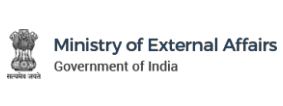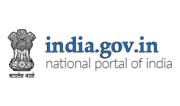Text of External Affairs Minister Mr. Pranab Mukherjee's oral intervention in the Lok Sabha during the debate on the Mumbai Attack
New Delhi
December 11, 2008
THE MINISTER OF EXTERNAL AFFAIRS (Mr. PRANAB MUKHERJEE): Thank you, Mr. Speaker, Sir. First of all, I would like to express my thanks to all the three hon. Members who have made their contributions up to now, and many more who would be participating.
While making his Statement my colleague the hon. Home Minister pointed out that I would intervene to point out certain external factors and elements associated with this attack. Had it been merely confined to a law and order situation arising out of the violent attack, perhaps there would have been no need of my intervention as the External Affairs Minister. But all of us are fully aware, and it has been pointed out now that the epicenter of this attack and not only this one, but also the series of attacks prior to this attack – is located in a neighbouring country.
Mr. Speaker, Sir before I proceed I would through you like to make an appeal. Perhaps, this is one of those debates of this House, which will draw maximum international attention: we are meeting immediately after the attack. Its international dimension have been noticed since the 26th of November and is still continuing. Concerns have been expressed by a large number of leaders from international community. More than 16 Heads of the States and Governments have spoken to Prime Minister over telephone and expressed their concern. Almost every Head of the State or Government have sent written messages. I have received a very large number of calls from my counterparts all over the world, and most of them not only expressed their solidarity with us but they have also expressed their confidence that India would be able to overcome this problem.
MR. SPEAKER: I want to also inform that I have got messages from the Presiding Officers of the National Assemblies of many, many countries, to share our agony.
Mr. PRANAB MUKHERJEE: Thank you, Sir.
So, this is the atmosphere in which we are discussing this issue. Democracy is always accompanied by dissension but at the same time there are occasions when keeping aside dissension on minor issues, we unite on major issues, and we express our views in a united manner. Therefore, this is one such occasion I would like to suggest to hon. colleagues that all of us should rise to this occasion.
Sir, 164 precious lives were lost. More unfortunately is that of these 164—every death is unfortunate but this is much more—more than 26 persons who lost their lives belong to other countries. They were our guests. When I expressed my condolences to the Foreign Ministers of those countries, the first thing I did was that I conveyed my apology, my regret to the 13 Foreign Ministers whose citizens were killed, including the Foreign Minister of Israel. I said that they were our guests and we could not protect them, I sincerely apologize to you. Of course, most of them pointed out that it is not our fault because terrorism has assumed a dimension which is not confined to any individual country and not confined within the territorial boundary of any State. It has really become cross-border. It has really become an international phenomenon.
We have all expressed our sense of outrage and the anger which the Indian people have felt. Had it been a single occasion, perhaps, it would not have happened to this extent and would not have assumed that level of anger and sense of outrage which we have witnessed this time.
When this event was taking place, when the attacks were going on, just a couple of hours before that, I was in bilateral talks with the Foreign Minister of Pakistan who was in India as my guest and who had come to India on my invitation. The next day we were to attend a joint seminar at Chandigarh essentially to discuss how to further improve people-to-people contact and improve the relationship between our two countries. This attack took place just then. Of course, after that, it was not possible for me to go to Chandigarh. The Pakistan FM returned after two days. I will come to this aspect a little later.
But, with reference to the depth of anger and the sense of outrage in the country, our people expect us, the people expect this country to rise to the occasion and to come to a resolute action which will convey the message that the territorial sovereignty, the territorial integrity of this country cannot be played with, it cannot be ignored and nobody should dare to attack us. This message must be conveyed.
Look at the series of events which have taken place and the location of recent bomb attacks. Jaipur is a most important tourist centre, Bangalore is the hub of Indian intellectuals and of science and technology, Ahmedabad is one of our most important industrial centres and Mumbai is our financial capital, the commercial capital of India. Are these mere coincidences? Are these only accidental? Or, is there a design? There is a method behind these. This is not the time to dissect the entire framework because that will take some time. Most respectfully I would like to submit that whatever be the depth of our anger, we shall also have to keep in mind that this is a phenomenon which cannot be easily switched off or switched on. We shall have to patiently confront it. Those who have propagated the thesis of inflicting thousand cuts upon us after failing to win a battle or to defeat this country in open armed conflict, they have done so as a deliberate exercise to cause great harm to this country but this country has grown from strength to strength.
We are not provoked. We have no intention to be provoked. All sorts of propaganda have been built up. That we have mobilised our Armed forces, that we have suspended air links, stopped every other activity, etc. Nothing in fact has happened. Yes, we have conveyed our sense of outrage and have conveyed the depth of our feeling. I talked to the Pakistan Foreign Minister over the phone on the 28th of November and every word of it was from a written text as per diplomatic norms and every word of this conversation is on record
A canard was spread simply depending on a hoax call that India is going to attack Pakistan; that our Armed Forces are mobilized; and that the Indian Foreign Minister has threatened the Pakistan President over the telephone. Most respectfully, I would like to submit that I have great respect for Mr. Asif Ali Zardari, the President of the Republic of Pakistan. But I have had a conversation with him only once and that was when I visited Pakistan in May 2008 and called on him. This was before he became the President and he was the Leader of his Party. It was the first and the last conversation that I have had with him.
Nobody would believe, and particularly in the case the establishment of a duly constituted Government as to how can the Foreign Minister of one country simply pick-up the phone and talk to the President of another country? These things cannot be done. These calls are fixed in advance. Even if the Foreign Minister speaks to another Foreign Minister, the time is fixed, the call is fixed, and all these things are routed through the foreign office. This type of thing does not happen. But what is worrying us is that if the establishment of a duly constituted Government believes in these types of things and tries to act on it, then it may sometimes cause major problems.
Various issues have been raised from the Foreign Ministry angle, and I would like to respond to some of them. Mr. Advani has suggested that we should go to the United Nations Security Council (UNSC). Mr. Salim has suggested that we should build-up an international campaign. I agree with both. Yes, we should build-up an international campaign against terrorism, and we should talk to all the countries concerned that this is not an India-Pakistan issue. This is not an issue related to the Jammu and Kashmir. This is an issue which is part of the whole issue of global terrorism. In almost every Annual Session of the UN General Assembly we, from India, have been tabling a Resolution that it is high time that there should be a Comprehensive Convention to deal with the problem of cross-border terrorism, it is the biggest menace to world peace and tranquillity in the post cold-war era. Unfortunately, it has not been possible to achieve this yet, but we are trying and will continue to do so.
We must keep in view that international relations depend on very delicate relations, and we should not try to distort a situation. We have our own domestic problems, and the Government of the day will have to deal with that. But this is an issue where adequate pressure has to be built-up and adequate pressure is being built-up.
This is an assurance that I can give you. I have spoken to more than two dozen Foreign Ministers and all of them agree – this is just not our view, this view has been shared by a large number of countries with whom we had interactions and with whom we had discussions – that they came from Pakistan and the whole exercise required long-term planning. It is just not that somebody comes with AK-47 rifle and indiscriminately fires and kills people and then tries to run away, or is killed. It was not like that at all in this case.
A most important dimension of this terrorist attack is that for the first time a terrorist attack in India has targeted foreigners – the targets were the Jews and other foreigners present. I have talked to my counterparts and informed them of the steps we have taken. Formally, I spoke to the Pakistan Foreign Minister on the 28th evening around 7-7.30 p.m. which was followed up by what is described in the diplomatic language as a ‘speaking note’. Thereafter, on the 1st of December, we lodged a formal demarche. There we urged that they must take action against certain organizations which are indulging in terrorist activities and against a number of fugitives who have committed crimes in India and who have violated the Indian laws and are taking shelter there. We said please arrest them and hand them over to us.
The Leader of the Opposition wanted to know whether we have taken up the extradition and return of Dawood Ibrahim. This has been done in every meeting with Pakistan at the level of the Home Secretary, at the level of the Foreign Secretary and at the four meetings of the Joint Anti-Terror Mechanism. We have given them a list of 42 persons – not one; not 20, but a list of 42 persons. We have also pointed out that mere denial is not going to resolve the issue. We said that you may deny their existence, but how are you going to convince your own people when these faces appear on the television screen?”
I have been asked or suggestions have been made to me as to why I am not responding when some arrests have taken place in Pakistan. As per newspaper reports, some camps have also been closed. My response is very simple. I was waiting for the Parliament to commence its sittings. I will respond here. Please follow it up seriously as exactly the same scene was played after the attack on Parliament in 2001. Therefore, action has to be carried to its logical conclusion by banning the organizations and by complete dismantling of the infrastructural facilities available on that side to facilitate the terrorist infiltration and terrorist attacks in India. Lashkar-e-Toiba is a banned organization in Pakistan. But by simply changing names and changing signboards, its activities have continued. How does that help us? The headquarters are the same, the ideologies are the same and activities are the same.
I am glad to inform you that this morning the UN Security Council has declared Jamat-ud-Dawa, the latest outfit of Lashkar-e-Tayyiba, as a banned organisation. Four people, including those who we had suggested, are listed as terrorists by the UNSC. We are told that in the names included is that of Hafiz Sayed. We were told by an international interlocutor that there was information that this man was arrested. However, within twenty minutes I heard from our Mission that this man was appearing on the television screen in an interview!
Masood Azhar has been house-arrested. What does ‘house arrest’ mean? The law in Pakistan is the same as the Indian Penal Code. The criminal laws are the same. In criminal cases there are two kinds of custody that could be contemplated - one is judicial custody and the other is police custody. Is this a convincing step?
I have no quarrel with the democratic Government of Pakistan. We welcome the return of democracy to Pakistan. Perhaps I was amongst the first Foreign Ministers to visit Pakistan after the new Government was installed. On behalf of the Government of India I conveyed our sincere desire to take steps to move forward and to build up our cooperation. I invited the Foreign Minister of Pakistan to come and also to participate in a seminar in Chandigarh jointly to explore the possibilities of enhancing people-to-people contacts.
On the question of the non-state actors, are the non-state actors coming from heaven? Are they coming from a different planet? These non-state actors are located in the territory of a particular country. The non-state actors are operating from within a particular country. What we are most respectfully suggesting to the Government of Pakistan is that please act. Mere expression of intention is not adequate.
We have been assured by Pakistan in this regard, not once but twice. On the 6th of January, 2004 – Shri Advani was the Deputy Prime Minister and Shri Atal Bihari Vajpayee was the Prime Minister then – President Musharraf in his joint statement with Prime Minister Vajpayee gave the solemn assurance that Pakistan’s territory will not be allowed to be used by terrorists. This was reiterated on 24th September, 2008 by another President of Pakistan, President Asif Ali Zardari. But, you find that terrorists are still coming from Pakistan.
The Home Minister has more information. It appeared in some newspapers that the controllers of these attacks, of those who were conducting the attack, when the action was underway, were instructing them to do this and do that, are in Pakistan. We do feel sometimes, and I do agree with Mr. Salim in this, that we have to draw many lessons from this. In their anxiety to beat the other channels in publicity, some channels were showing crowds of people on the screen. Instructions then came to the terrorists to throw a grenade at the crowd.
Some lives were lost because of the anxiety to get publicity. If the camera was not focused there and if the crowd was not seen there by those who were monitoring from outside, perhaps these things would not have happened. So, we have to draw the lessons of where to stop and where to pause.
Our brave soldiers have sacrified their lives, a graphic picture of which has been given by the Home Minister: the way the Maharashtra ASI took bullets in his body to facilitate the capture of the terrorist by other police personnel, we, ordinary mortals, cannot even think of such sacrifices. Hats off to him. I salute our security people. When they were sacrificing their lives, from a safe distance if somebody thinks, that he will defeat his competitors by getting larger viewers by giving updated news, he may serve the interests of the company but surely he or she will not serve the interest of the nation. Most respectfully, I would like to submit that is the lesson we have to draw of where to stop and where we have not to go.
Mr. Speaker, Sir, I read the article of President, Asif Zardari in the New York Times. I have full sympathy for him when he says that events of Mumbai reminded him of the time when Benazir was assassinated. There is a book written by Mrs. Benazir Bhutto and published in Great Britain Schuster Limited in 2008. I am just quoting one point that will reflect the internal situation. I quote:
“But in Pakistan things are almost never as they seem. There are always circles within circles, rarely straight lines. This was meant to look like the work of Al-Qaeda and the Taliban and I do not doubt that they were involved. Elements from within the Pakistani Intelligence Services had actually created the Taliban in the 1980s and certain elements sympathised with Al-queda ideologically and theologically. Some had recruited for and worked with it. I had identified those I suspect in my letter to the General…...”
(`General’ means President Pervez).
“…. before my return.”
This is written by whom? If she was alive, she would have become the Prime Minister of Pakistan today or the President.
Now, that may be the internal situation. This is exactly what I told my interlocutors that you have to appreciate it and do not try to have a general straightjacket formula that this is a dispute between India and Pakistan, Kashmir is the bone of contention, solve the problem of Kashmir and everything will be in place.
Mr. Speaker, Sir, most respectfully I would like to submit, I do not believe in this straitjacket simple formula. It is a complex situation. I have no doubt of that. We want to encourage democratic institutions and the democratic system in Pakistan but it is not for us to decide how. We cannot deliver this. It is for the people of Pakistan, it is for the institutions of Pakistan and it is for the civil society of Pakistan to undertake this job. And most respectfully I would like to submit that simply by raising hysteria that a big power is going to attack Pakistan and trying to divert attention, taking the plea of a hoax call from the Indian Foreign Minister to the Pakistan President is not going to yield results.
We expect some positive steps from Pakistan. Of course, it is for them to decide. Most respectfully I say that we have suggested several times, in all international and in all bilateral fora, in our dialogue and in our communication with them that please deny them sanctuary, accept the facts and try to resolve the situation, and that we are ready to help. While having discussions with the Prime Minister over phone, it was offered that Pakistan DG, ISI would be coming to India. But within hours, this was denied. That may be the internal problems of Pakistan, but how is it going to help India? If they are not able to resolve their internal problems, they will have to find a way out. The international community can only help them.
But we cannot completely ignore history. In the name of preventing the advance of communism, they are armed to the teeth, resulting in the rise of the Taliban. I remember a conversation between two former Prime Ministers sometime in the early 1980s. I can mention the names of the former Prime Ministers. It was Mrs. Indira Gandhi and Mrs. Thatcher. I was the eye witness and it was a breakfast meeting. In reply to a question Smt. Gandhi asked, “Tell me, is there a single shot from Pakistan that had been fired in any direction, other than India?” There was no answer.
We are fully aware of the situation; I am not indulging in jingoism or in any such sort of thing. But I am simply expressing my anger. This is the feeling of the Indian people. We have to deal with them – I know that I cannot change my neighbour and I cannot live with my neighbour in perpetual tension. That is the policy that we have been following. But we expect that the issues will be addressed, the issues cannot be ducked; and issues cannot be sidelined.
Mr. Speaker, Sir, with these words, I conclude.
Sir, I most respectfully submit that I have circulated a draft of a Resolution to the hon. Leaders. After this, we can sit with them, if they want to have some sort of a discussion. But as the very nature of the debate, the rule under which it is being discussed, it does not end in the adoption of a Resolution. So, it cannot be the outcome of the discussions, because if I understand correctly, you are allowing this discussion under rule 193; and normally the Parliament expresses its sense through a substantive motion, either under rule 184 or something like that. But they are technical issues. It does not matter, and so, at the end of the debate, we can adopt the Resolution.
MR. SPEAKER: You may leave the issue of rules to me.
Mr. PRANAB MUKHERJEE: I am leaving it to you, Sir. You are the master and you will look into it. We express our views on this.
Mr. MOHAN RAWALE (Mumbai South-Central): Hum kitne din Pakistan ke sath charcha karte rahenge? Aapne kaha ki Pakistan ke khilaf subut hain, to Pakistan par attaik kyon nahi karte?
Mr. PRANAB MUKHERJEE: That is not the point. That is not the issue. I am making it quite clear that that is not the solution. Let us be very clear and frank that that is no solution. Thank you.







